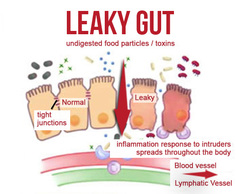Change can be inspired by pure love for innovation, or it can be directed from old systems that no longer, or never did, work. This happens all the time in health care, as we learn and shift our practices to suit new knowledge. Recently, we've seen some changes to some long-held standard practices and treatments that I wanted to share with you.
Aspirin
For decades, 81 mg baby Aspirin (acetylsalicylic acid) was added to anyone's protocol when there was a cardiovascular concern, or someone reached a certain age. I quickly learned when taking the case of anyone with heart disease to automatically add it to their list of medications. The purpose was for a blood thinning effect, to reduce the risk of a vascular event. Unfortunately, Aspirin is also hard on the stomach and can cause gastrointestinal bleeding. It can also cause bleeding in other locations, and increases the risk of colon cancer. In 2019 the American Heart Association (AHA) removed it from their guidelines based on research studies that challenged the assumption that daily Aspirin prevented primary heart attacks and strokes. (1) The AHA recommendations for the prevention of cardiovascular disease strongly focuses on the importance of healthy lifestyle, including food, exercise, and avoiding smoking. (2) In the journal of the Canadian Medical Association it stated that, "clinicians are strongly encouraged to promote medical, lifestyle and behavioural changes that are more effective than ASA (aspirin) in preventing cardiovascular events." (3) The US Preventive Services Task Force (USPSTF) also updated their Aspirin recommendations more recently. (4) Its use as a blood thinner is still officially recommended for prevention of secondary cardiovascular and cerebrovascular events. (5)
There are other ways to achieve blood thinning without the negative effects on the gastrointestinal system and bleeding. Alternatives like Omega-3 as fish or krill oil, garlic, turmeric, ginger, grapeseed, and even regular blood donations can help to improve cardiovascular health outcomes. And I often use marshmallow root, deglycyrrhizinated licorice and other herbs to heal the esophagus and stomach lining. Of course, each person has a unique health picture that must be considered before making specific recommendations - it's not one size fits all, and only the prescribing physician can adjust your medications. Still, it's an important consideration since cardiovascular disease is still the worldwide biggest cause of mortality, so up to date considerations are extremely valuable. Read more about caring for your heart health here.
Zantac (Ranitidine)
1 in 3 people experience acid reflux and, as a result, antacids are an extremely popular over the counter and prescription medication. (You can read more about heartburn and acid reflux here.) We certainly don't want acid in the esophagus, because that can lead to damage, but we should also consider that antacids can interfere with digestion and nutrient absorption. In 2019, several manufacturers recalled their Ranitidine (H2 blocker) antacid products (including over the counter no name brands like Exact, Compliments and Life) due to the presence of NDMA, a nitrosamine impurity, at unacceptable levels. Health Canada has since permitted sales of ranitidine antacids as long as batches are tested, however, certain lots are still being recalled after making it onto the market in 2021 and 2022. (6)
So what's the problem with NDMA? It's considered a probable carcinogen, with the risk increasing with prolonged duration of use (the more you take the higher your risk). (7) Unfortunately, lots of people with heartburn take medications almost daily for years, which has led to ongoing lawsuits against the manufacturers. In studies cited by those lawsuits, Ranitidine use has been considered linked to colon, liver, bladder, thyroid, breast, kidney and stomach cancers, with prosecutors claiming the companies withheld knowledge of these risks. Yikes. Since then, newer versions of the product are said to not contain any of this compound.
Now What?
We can support healing of the esophagus, stomach, and replace depleted nutrients. The history of Aspirin and Zantac are simply two examples of standard, decades long practice of treatment for extremely common health concerns, that were eventually discovered to be counter to the best interests of the patients. As you know, I never share information out of fear, I outline these two circumstances to describe the ways in which we evolve in our treatment philosophies and understanding of health. Being educated on our choices creates empowerment, and what was the right decision before might be different now.
Now that we know better, we can do better. And yes, we can certainly do better when it comes to our wellness.
Fortunately, there are many incredible ways that we can support well functioning cardiovascular and digestive systems, and ultimately stimulate healing and maintain good health for years to come. I love creating personalized strategies to achieve these goals.
In your corner,
Dr. Christa
Rest. Eat well. Move everyday. Go into nature. Connect.
1. https://www.heart.org/en/news/2019/03/18/avoid-daily-aspirin-unless-your-doctor-prescribes-it-new-guidelines-advise
2.. https://www.washingtonpost.com/lifestyle/2021/10/12/low-dose-aspirin-heart-attack-stroke/
3. clinicians are strongly encouraged to promote medical, lifestyle and behavioural changes that are more effective than ASA in preventing cardiovascular events.
4. https://www.ahajournals.org/doi/10.1161/CIR.0000000000000678
5. https://www.cmaj.ca/content/192/12/E302
6. https://recalls-rappels.canada.ca/en/alert-recall/ranitidine-products-recalled-because-nitrosamine-impurity
7. https://www.health.harvard.edu/blog/popular-heartburn-drug-ranitidine-recalled-what-you-need-to-know-and-do-2019092817911
Book Appointment


 RSS Feed
RSS Feed